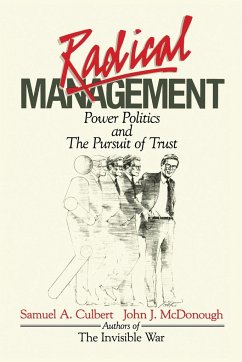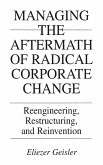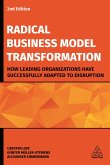When newspapers across the country reported Capital Cities Communications' stunningly successful bid for ABC, The New York Times asked a senior official at another of Capital Cities' recent acquisitions, Institutional Investor, if it was true that Capital Cities left management in place when it took over a firm. "I was a little skeptical when the company was bought," he conceded. "But they create a sense of trust. It's a wonderful motivational device." This concept of trust as a key to organizational effectiveness lies at the heart of Radical Management, Samuel A. Culbert and John J. McDonough's challenging new book. For years, the authors point out, business has been enslaved to a "rational" model of management that asks only that executives meet narrow organizational goals, regardless of the needs and views of those they work with. But while this bottom-line mentality can produce satisfactory results on the balance sheet, in the workplace its effects are often disastrous -- breeding misunderstandings, hidden resentments, infighting, and even costly power struggles. Arguing that what many executives understand about the complex political forces at work in an organization "wouldn't fill the proverbial thimble," Culbert and McDonough propose a radical model of management: one that gives managers the insight they need into organizational politics to allow them to improve communication and share power. Generously illustrated with revealing case vignettes drawn from their extensive consulting experience, the authors' framework shows accomplished and prospective managers alike how to recognize and respect the inevitably differing talents, perspectives, and expectations that associates bring to their jobs. It reveals the enormously subjective influences at work in any organization and why they must be openly acknowledged and accommodated if managers are to promote cooperation and assure productivity. Radical Management decodes and demystifies the vast majority of organizational conflicts in which executives at all levels so often become embroiled. Adding a human dimension missing from the "rational" model's hard-nosed, coldly analytic approach to management, Culbert and McDonough demonstrate how to foster the trust that generates teamwork, cements support for corporate plans, and -- yes -- boosts profits as well. Above all, they prove that trusting relationships in business make for more than good office morale: They're nothing less than "the most efficient management tool ever invented."








